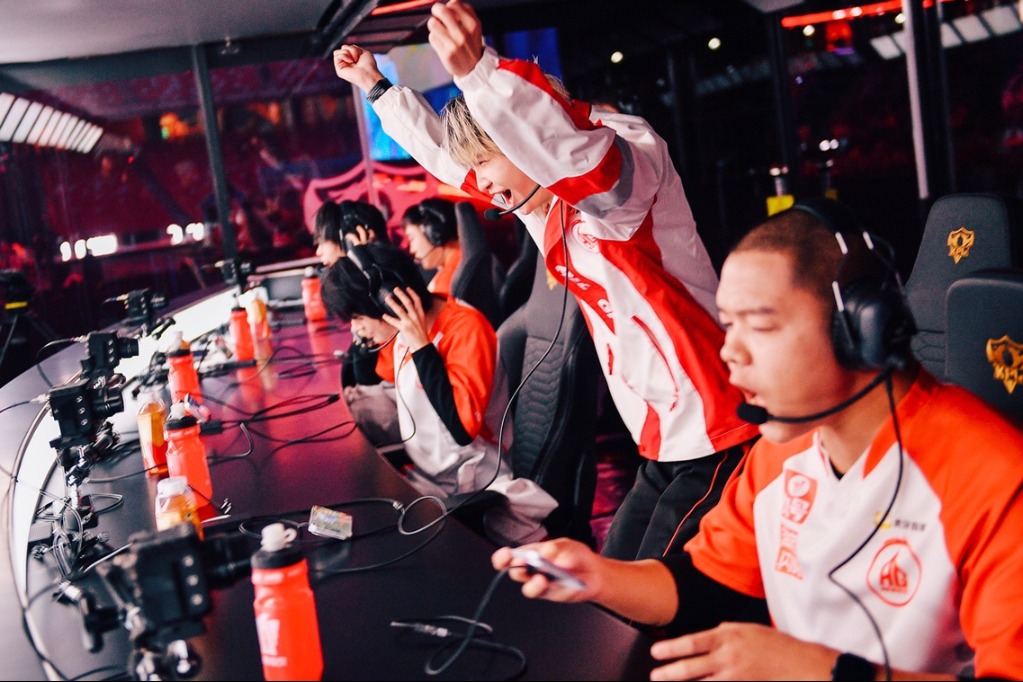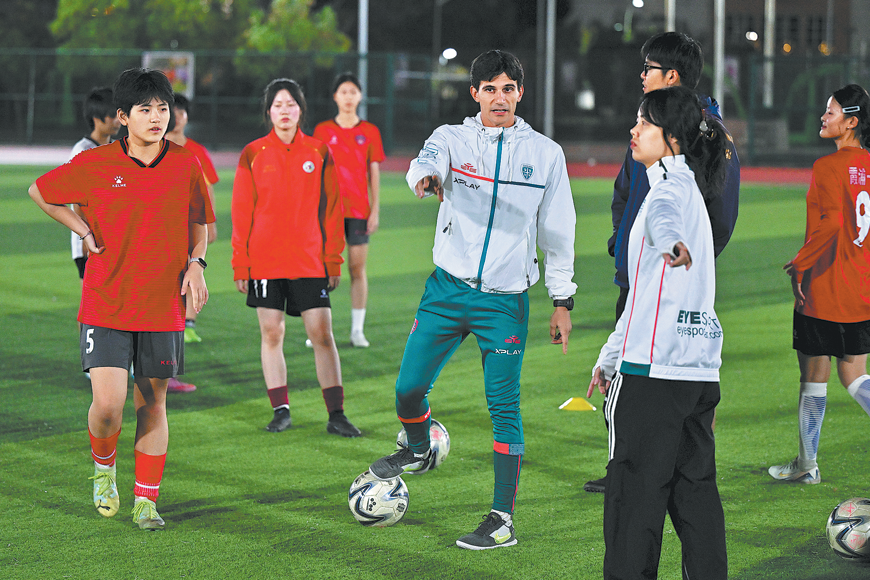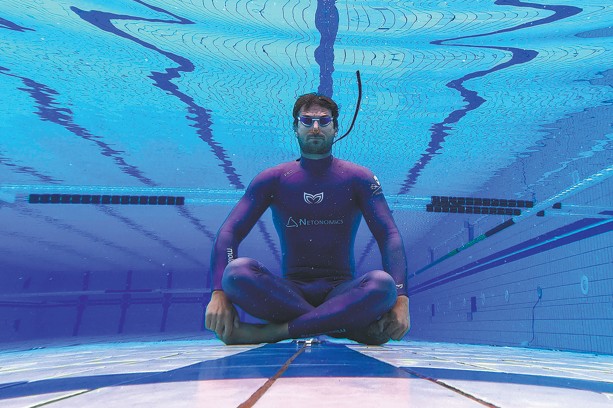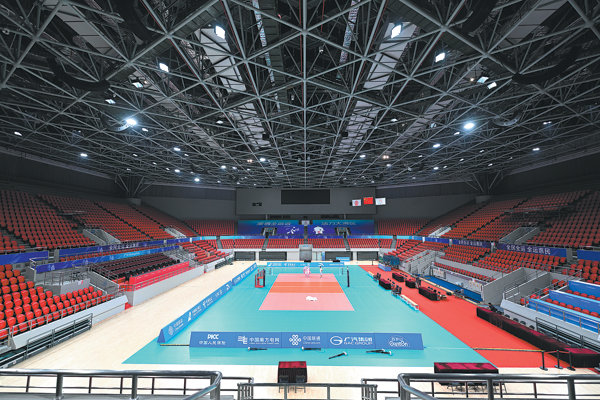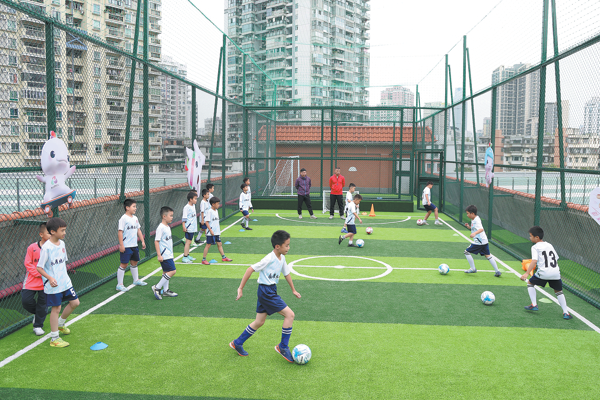Games' early success hailed as records fall


Participants salute venues, pandemic prevention and control measures
With the action underway, records being broken and COVID-19 risks under control, the Beijing 2022 Winter Olympics are in full swing, with participants hailing the safe, friendly and unforgettable times they are experiencing in the Chinese capital.
Having staged the 2008 Summer Games to international acclaim, Beijing has set higher standards for the winter edition.
The aim is not to merely celebrate elite sports achievements, but also to provide an opportunity for the world to unite and bond more closely in the face of common challenges such as the COVID-19 pandemic and political disputes.
Sporting action at the highest level, underlined by records being set on the ice and snow, has refocused international attention after attempts by some Western governments to politicize the Beijing 2022 Winter Olympics by using so-called diplomatic boycotts ahead of the Games.
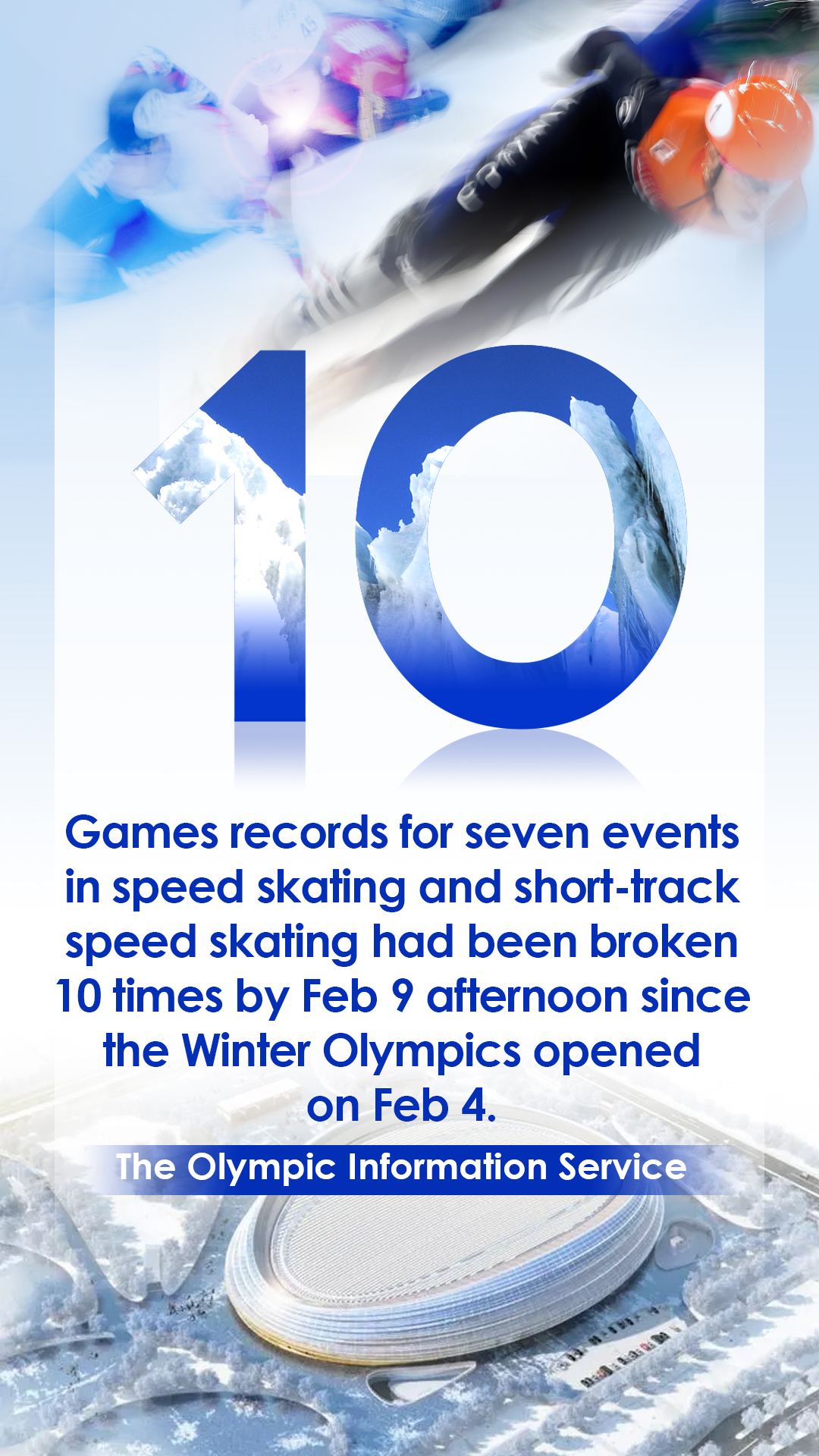
According to the Olympic Information Service, Games records for seven events in speed skating and short-track speed skating had been broken 10 times by Wednesday afternoon since the Winter Olympics opened on Feb 4.
The rise of young stars, such as China's freestyle skiing prodigy Gu Ailing, and the return of veterans, including defending Olympic champion snowboarder Shaun White of the United States and German eight-time Olympic skater Claudia Pechstein, captured international attention midway through the first week of the 18-day Games.
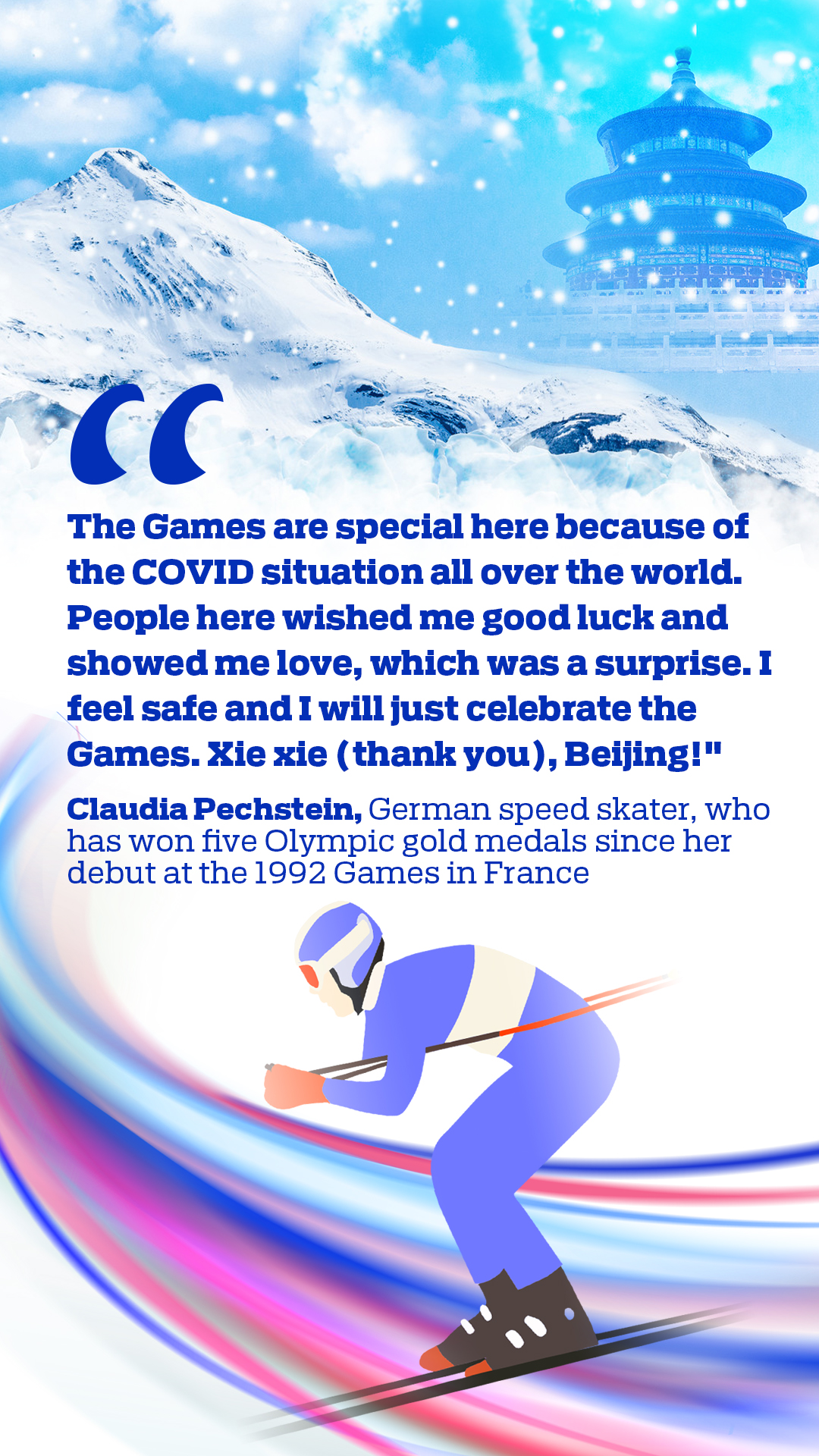
Fascinating stories, such as Canadian gold-winning snowboarder Max Parrot's battle against cancer, have also featured in the international spotlight.
Kit McConnell, the International Olympic Committee's sports director, said that with the action taking place at state-of-the-art venues, the focus of the Games "has returned to where it is supposed to be".
"Congratulations to every single one of the athletes for those performances. I think it's really a testament to their efforts individually, but also the real focus of these Games now on the field of play," he said at a daily news briefing at the Main Media Center in Beijing's Olympic Park on Monday.
Safety-first Games
As the first Winter Olympics to be held during the pandemic, Chinese organizers, together with the IOC and World Health Organization, are implementing a closed-loop management system for all Games participants.
Athletes, team officials and media representatives are requested to move only between the Olympic villages, designated hotels, Games' venues, or working areas, using official transportation services isolated from local communities in the hosting areas.
Pandemic control and prevention measures, which also include daily testing of all participants, full vaccination against COVID-19, social distancing, contact tracing and isolation of positive cases, have been effective in keeping the number of infections as low as possible within the loop, while preventing imported cases spreading to the community.
Huang Chun, deputy director of the Beijing 2022 organizing committee's office of pandemic prevention and control, said that from Jan 23 until Monday, 393 Games participants had tested positive for COVID-19 inside the closed loop, with about 40 percent of them athletes and team officials. Some 68 percent had recovered and been moved out of isolation.
"Almost all the positive cases were infected before arrival in China, or detected during the incubation period inside the closed loop," Huang said at a daily briefing on Tuesday.
"Inside the loop there are no cluster infections, showing that the current measures are effective and the overall risk is under control."
Huang predicted that as the number of Olympic arrivals in China drops with the Games in progress, positive cases within the loop will also fall.
Brian McCloskey, chair of the Beijing 2022 Medical Expert Panel, said: "I still believe that the situation inside the closed loop is extremely safe. There's no sign of the spread of infection-certainly no sign of infection spreading outside the loop. So that is generally good news."
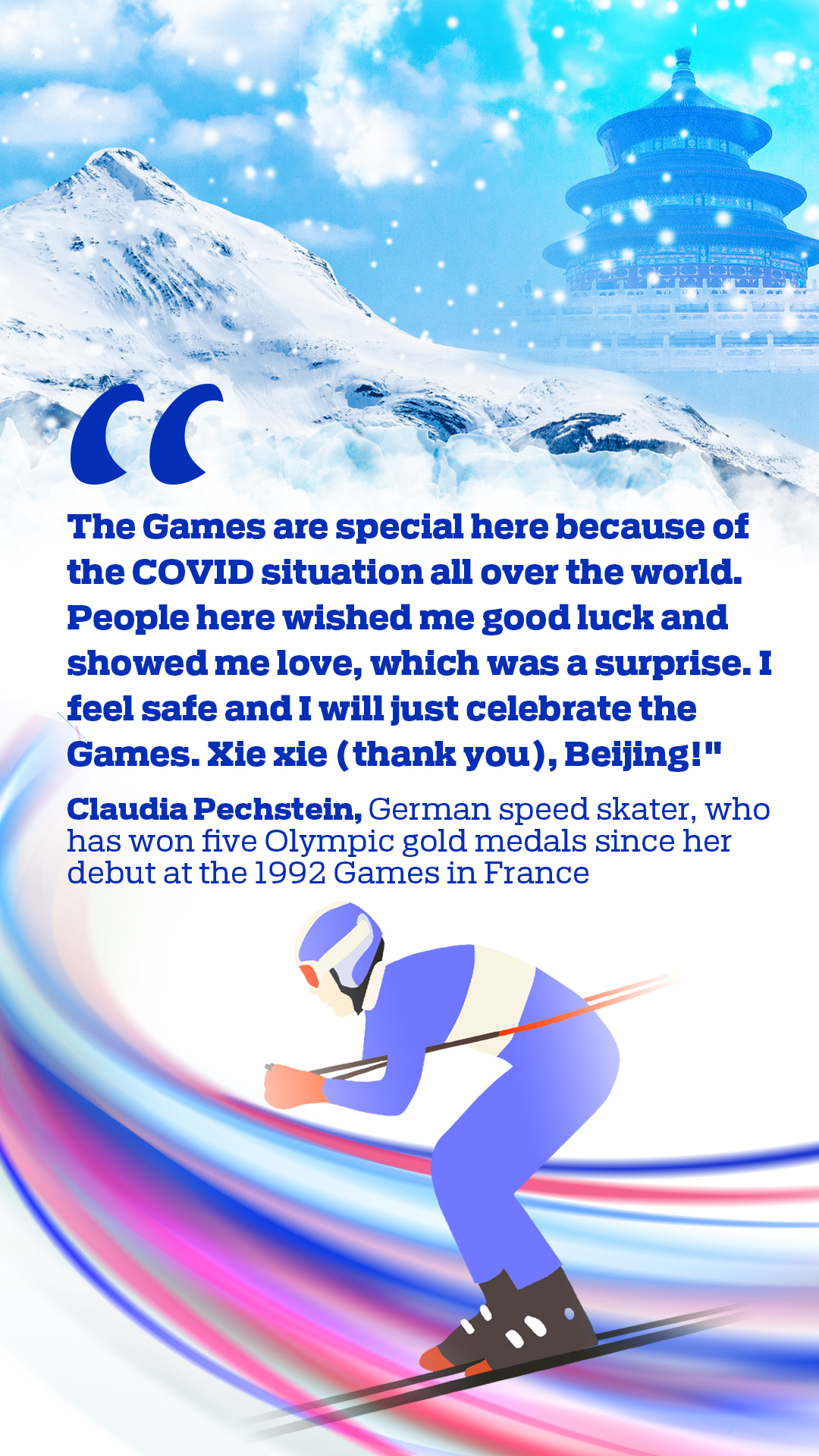
Although they arrived in China with concerns about the strict COVID-19 protocols, most athletes have settled in well and have hailed the vigilant pandemic control measures and health services provided at the Olympic villages and venues.
Australian freestyle skier Britteny Cox, who described the closed loop as a safe haven for athletes, said, "I think the fact that every single person is doing tests every day gives me a lot of peace of mind.

"It just allows us to focus on what we're here for... I think the Chinese and the Olympic committee have done an incredible job in making sure that we're all safe and healthy-both for the local community here in China and for all the athletes and everyone involved in the Games."
Thanks to the closed-loop solution that allowed the Games to proceed on schedule, veterans have been able to make their last Olympic appearances. They have also voiced their appreciation for the organizers' relentless efforts to tackle complex challenges.
Pechstein, the German speed skater, who became the oldest female Winter Olympian in history on Saturday when she competed in the 3,000-meter event at age 49 during her eighth Games, said she would not have achieved that milestone if Beijing 2022 had been delayed, as the 2020 Tokyo Summer Olympics were.
"The Games are special here because of the COVID situation all over the world," said Pechstein, who has won five Olympic gold medals since her debut at the 1992 Games in France.
"People here wished me good luck and showed me love, which was a surprise. I feel safe and I will just celebrate the Games. Xie xie (thank you), Beijing!"
World-class venues
As athletes push themselves to the limit at the Games, the competition venues have won over the world's best, with the facilities' exceptional quality and operations aiding the quest for gold on rinks, slopes and tracks. The venues are located in downtown Beijing, the northwestern district of Yanqing, and in Chongli district, Zhangjiakou, Hebei province.
A highlight of the advanced venues in Beijing, the National Speed Skating Oval, built on the site of the archery field for the 2008 Games, had witnessed Olympic records in four events-the men's and women's 1,500m, women's 3,000m and men's 5,000m-by Tuesday. These successes were testimony to the quality of the 400m track, which impressed top competitors after each race.
The use of carbon dioxide as an environmentally-friendly refrigerant in the cooling system at the venue was the first time this practice had been adopted on such a scale at the Winter Olympics.
The system's quick cooling effect and constant temperature helps retain ice density and lubrication as much as possible, greatly helping the athletes' pursuit of speed.
Dutch skater Thomas Krol said after winning a silver medal in men's 5,000m on Tuesday: "It felt like my home rink in Heerenveen in the Netherlands. It turned out well for me, so the people responsible for the ice did a good job and made the ice perfect today."
As part of Beijing's bid for the Winter Olympics, the reuse of 2008 Summer Games' venues, including the National Aquatics Center, has earned praise from international officials and athletes for the city's promise to host a sustainable Olympics with a lasting legacy.
The aquatics center, also known as the Water Cube, has been transformed into the Ice Cube for the curling events at Beijing 2022, with the swimming pool filled with removable steel brackets, on top of which are placed sheets of ice.
This project has turned the center into a dual-purpose venue that can host swimming, diving and ice sports, an innovation that has impressed athletes at the Winter Games.
Vicky Persinger, representing the US in the mixed doubles curling, said: "I really like the fact that Beijing decided to reuse this venue. I think it's a great use of resources, instead of spending millions of dollars on a new building. Out there, on the ice, I can tell I'm right over the top of the swimming pool, which is really cool."
Growing interest
With Beijing 2022 yet to reach its halfway mark, the Games' legacy in promoting winter sports among China's 1.4 billion population is already taking shape, underscored by public interest in watching the world's top athletes perform to the highest level on television, or by attending events as spectators.
According to an official report released last month, 346 million Chinese have taken part in winter sports and recreational ice and snow activities since Beijing won the bid in 2015 to host the Winter Olympics.
This figure, which accounts for about 25 percent of the population, is clear evidence that there is a huge untapped market in China for businesses such as event management, grassroots training and equipment manufacturing for global winter sports brands and organizations.
IOC President Thomas Bach said in his opening speech to the 139th IOC Session in Beijing on Feb 3, "From this tremendous growth, the winter sports industry across the globe will greatly benefit because of the high demand for infrastructure, equipment and expertise.
"This is not just an expectation. This is already happening now during the preparations for these Olympic Winter Games, where much of the technology and knowhow have been provided by companies from traditional winter sport markets."
McConnell, the IOC's sports director, is also excited that China has emerged as a winter sports nation and strong competitor in an increasing number of events.
During a media briefing on Monday, he said, "I touched on the outstanding nature of the venues-and that's not something we will just see in the 16 days of these Games.
"It's not just a physical legacy, but there's a real legacy being built for winter sports in this country. We are going to be feeling the positive legacy of this in China across the world of winter sport for years to come. It's not just hardware in the venues, it's the software, with the knowledge and experience of the people operating those venues."
Most Popular
- Coordinated anti-doping effort in full swing
- Chengdu AG defends King Pro League title, sets world record at Bird's Nest
- Paving Serie A pathway for Fujian youths
- Croatian diver already eyeing next breathtaking achievement
- Making good use of the current, upgraded venues are greener than ever
- Celebrating the people's Games

















